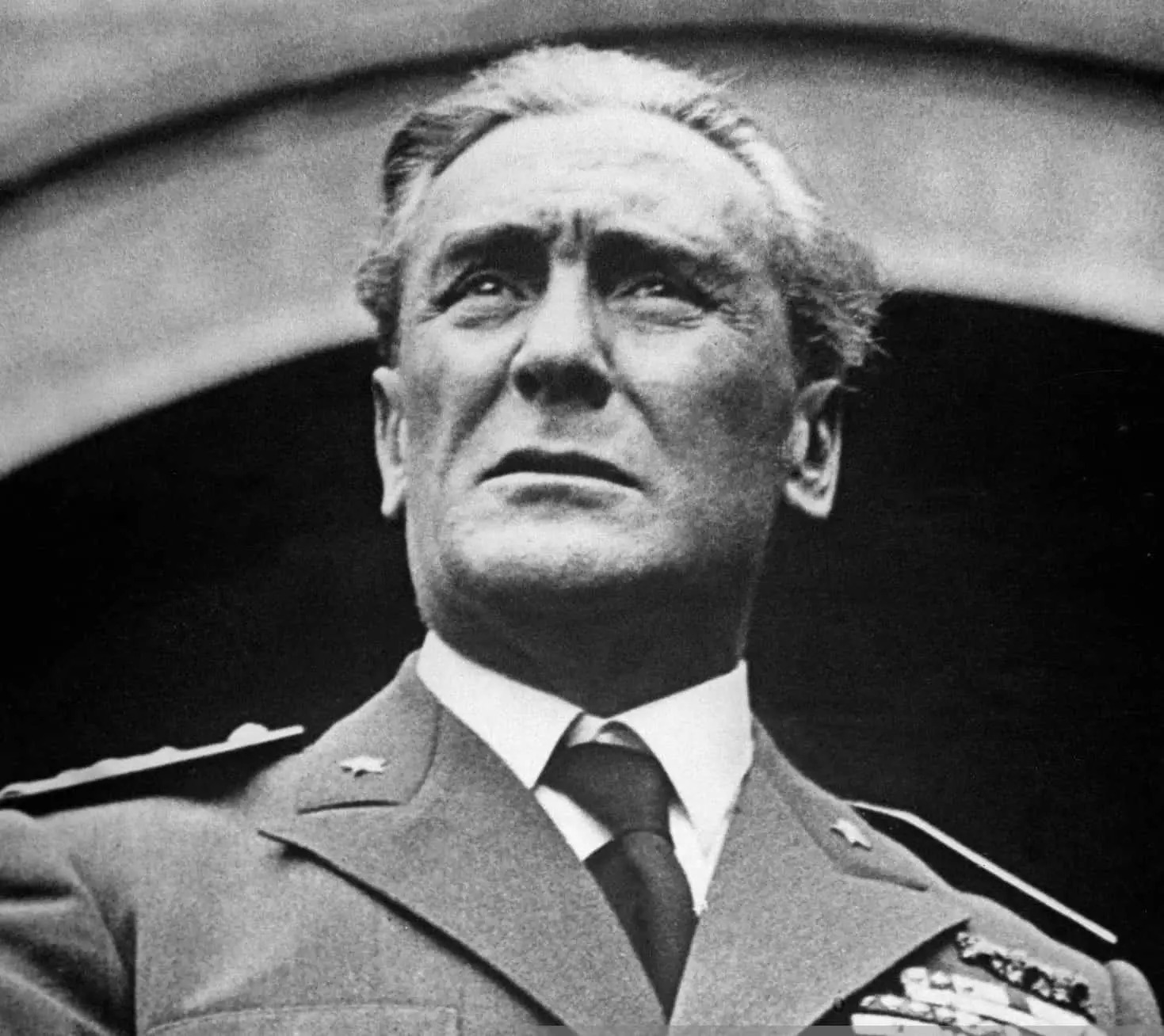
Rodolfo Graziani,1st Marquis of Neghelli(11 August 1882 – 11 January 1955) was an Italian officer who led military expeditions in Africa before and during World War II.
Rodolfo Graziani was born in Filettino in the province of Prosinone, Italy. He served in World War I and became the youngest colonel in the Royal Italian Army.
In the 1920s, Graziani commanded the Italian forces in Libya. He was responsible for suppressing Senussi rebels. In this so-called pacification, he was responsible for building several concentration camps and labor camps where tens of thousands of Libyan prisoners died or were killed by hanging, such as Omar Mukhtar, bullets, or indirectly through starvation and disease.
His actions gave him the nickname “Butcher of Libya” among the Arabs, while the Italians called him the peace creator of Libya (“Pacificatore della Libia”). From 1926 to 1930, Graziani was the Deputy Governor of Italian in Cyrenaica of Libya. In 1930, he became the governor of Cyrenaica and held that position till 1934, when it was decided that he was needed elsewhere. In 1935, Graziani was made the governor of Italian Somaliland.
From 1935 to 1936, during the Second Italian-Abyssinian War, Graziani commanded the southern front. His army invaded Ethiopia from Italian Somaliland, and he led the Italian forces in the Battle of Genale Doria and the Battle of Ogaden. Graziani’s effort in the south stood in the shadow of the main invasion that took place from Eritrea under the command of General Emilio De Bono and continued under Marshal Pietro Badoglio. It was Badoglio but not Graziani who went into Addis Ababa in triumph after his “March of the Iron Will.” But it was Graziani who said: “The Duce will have Ethiopia, with or without the Ethiopians.”
Addis Ababa fell to Badoglio on 6 May 1936. Graziani had wanted to reach Harar before Badoglio reached Addis Ababa but failed. Yet, Graziani was on 9 May promoted to the commander of Italy for his role as commander of the southern front.
After the war, Graziani was appointed as Viceroy of Italian East Africa and Governor-General of Shewa/Addis Ababa. Graziani survived an assassination attempt on 19 February 1937 and responded by implementing subsequent bloody repression. He became known as the “Butcher of Ethiopia.”From 1939 to 1941, Graziani was the head of the army general.
At the beginning of the North African Campaign(the Desert War) of World War II, Graziani commanded the 10th Italian Army, which was stationed in Cyrenaica of Libya. He was the top in Italian North Africa and Governor-General of Libya after Italo Balbo’s death. Balbo was killed when his plane was shot down by Italian anti-aircraft fire on 28 June 1940.
The Italian dictator Benito Mussolini initially gave Graziani a deadline of 8 August to launch an invasion of Egypt. Graziani expressed doubts about its largely non-mechanized army’s ability to defeat the British and postponed the attack for as long as he could. Under the threat of demotion, Graziani finally followed his orders, and parts of the 10th Army invaded Egypt on 9 September.
The Italian troops made little progress in Egypt and then built a series of fortified camps to defend their position. In 1941, Graziani resigned after the British had conducted a counterattack and ultimately defeated the 10th Army in Operation Compass.On 25 March, 1941, Graziani was replaced by General Italo Gariboldi. He was appointed as Minister of Defense in the Italian Social Republic and oversaw the joint Italian-German LXXXXVII “Liguria” Army.
By the war’s end, Graziani spent a few days in San Vittore prison in Milan before being transferred to Allied’s control. He was brought back to Africa in Anglo-American custody until February 1946. Allied forces felt then that the danger of assassination or lynching was driven over and returned him to prison in Procida, Italy. In 1950, a military tribunal sentenced Graziani to jail for 19 years as punishment for his collaboration with the Nazis, but he was released after a few months. He died in Rome a few years later, in 1955.
